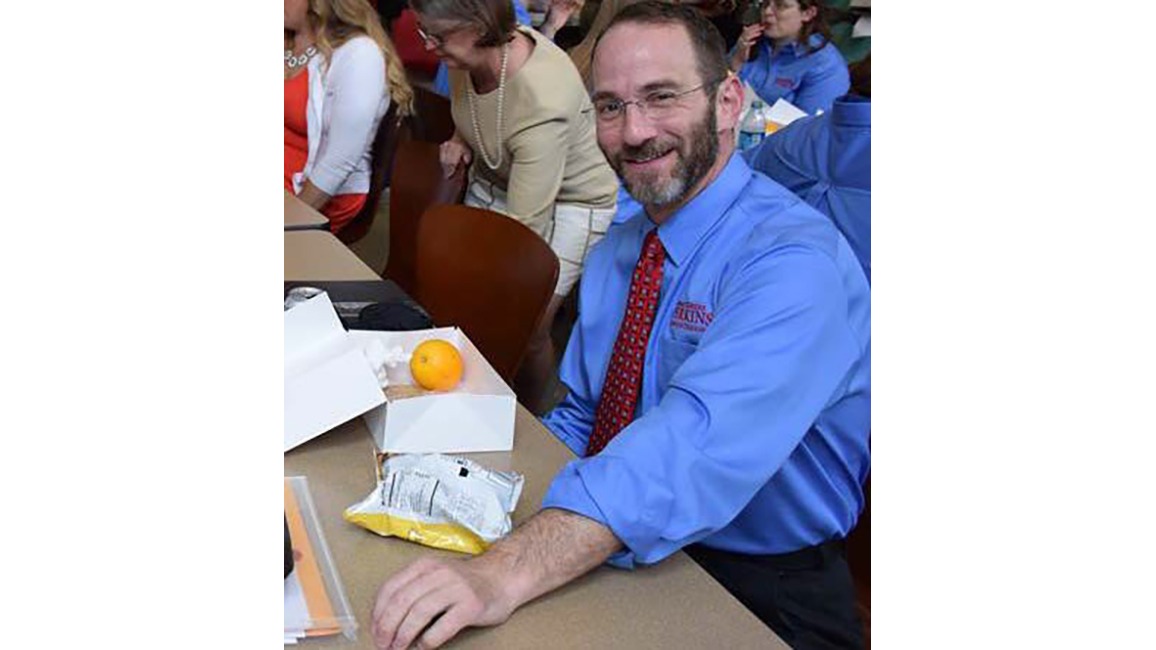Lenten Devotional: At Parkland, It’s Not Hard to Find the Holy
A chaplain resident says it dwells in patient rooms, the tears of clinicians, the dying who have no one
Every morning, after gathering to review the previous night’s traumas, losses and deaths, the chaplains at Parkland Health and Hospital System in Dallas move to the chapel to share a time of devotion. A Lenten reading last week from the office was an appropriate lament from Jeremiah 8:
My joy is gone, grief is upon me,
my heart is sick.
Hark, the cry of my poor people
from far and wide in the land:
“Is the Lord not in Zion?
Is her King not in her?”
(“Why have they provoked me to anger with their images,
with their foreign idols?”)
“The harvest is past, the summer is ended,
and we are not saved.”
For the hurt of my poor people I am hurt,
I mourn, and dismay has taken hold of me.
Is there no balm in Gilead?
Is there no physician there?
Why then has the health of my poor people
not been restored? (Jeremiah 8:18-22)
In this season of division, of fear, of longing, I cannot help but think of the cry of the poor and all those who sacred scripture holds up for the community to embrace in their special need.
The word of the Lord came to Zechariah, saying: Thus says the Lord of hosts: Render true judgments, show kindness and mercy to one another; do not oppress the widow, the orphan, the alien, or the poor; and do not devise evil in your hearts against one another. But they refused to listen, and turned a stubborn shoulder and stopped their ears in order not to hear. (Zechariah 7:8-11)
The cost of Judea’s refusal to listen was exile in Babylon. What is the cost of my refusal to listen to the cries of those who are suffering around the world?
Of course, our Parkland devotion had no choice but to sing the hope of those victims of the greatest oppression in our society’s memory:
There is a balm in Gilead,
To make the wounded whole;
There is a balm in Gilead,
To heal the sin-sick soul.
I think of the church’s generous ministries to those in need — Bethlehem Center and Agape Clinic, Jubilee Park Community Center and CitySquare. And I think of the care that nurses, doctors, custodians and chaplains give to the city’s uninsured at Parkland, how companionship, generosity, and faithful relationship are healing to so many of us.
It’s the presence of the holy that inspires this healing, and that heals:
Sometimes I feel discouraged,
And think my work’s in vain,
But then the Holy Spirit
Revives my hope again.
It is not difficult to find the holy at Parkland. It dwells in patient rooms, in the tears of clinicians when noble families support a dying loved one and when those who are dying have no one, in the faces of the stillborn whom mothers hold when their children go to heaven before taking a breath.
In the face of such ineffable grace, words fail. Telling the story of our salvation and our Lenten hope is a comfort, even to those whose experience of the holy is sacred, if not Christian.
If you can’t preach like Peter,
if you can’t pray like Paul,
just tell the love of Jesus,
and say he died for all.
Jesus’ journey to Calvary, as alien and poor, is our journey to death — and to the life that God has promised us in creating us, sustaining us and walking with us from trial and illness to our home again, with God.
Eric Markinson is a chaplain resident at Parkland Health and Hospital System, and finishing his Master of Divinity at Perkins School of Theology. He attends Grace United Methodist Church in Dallas.
Published: Wednesday, March 22, 2017

